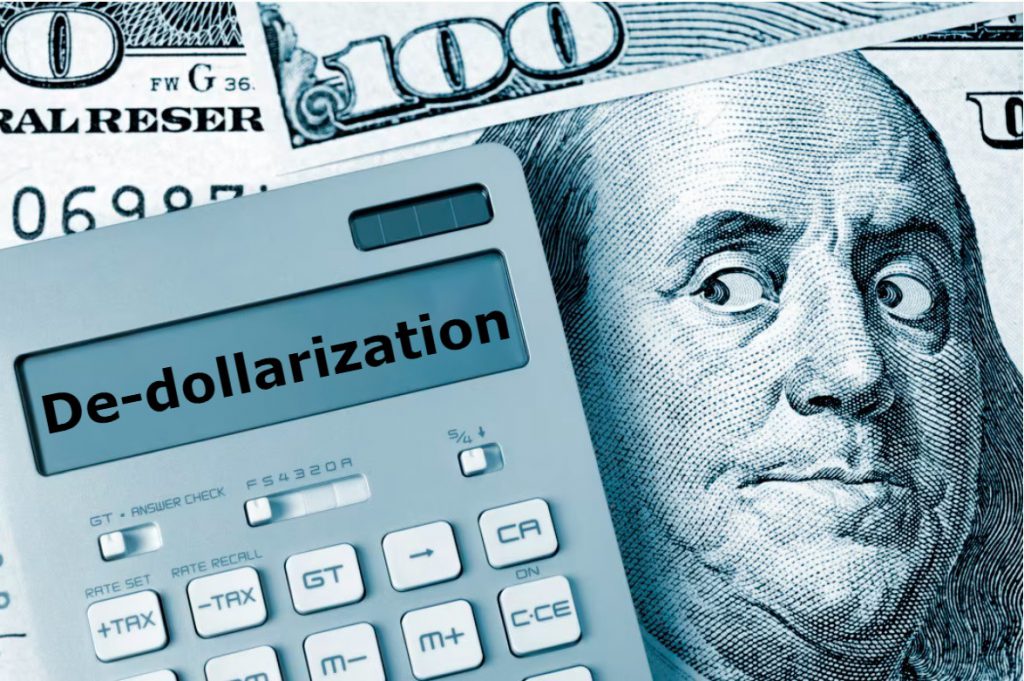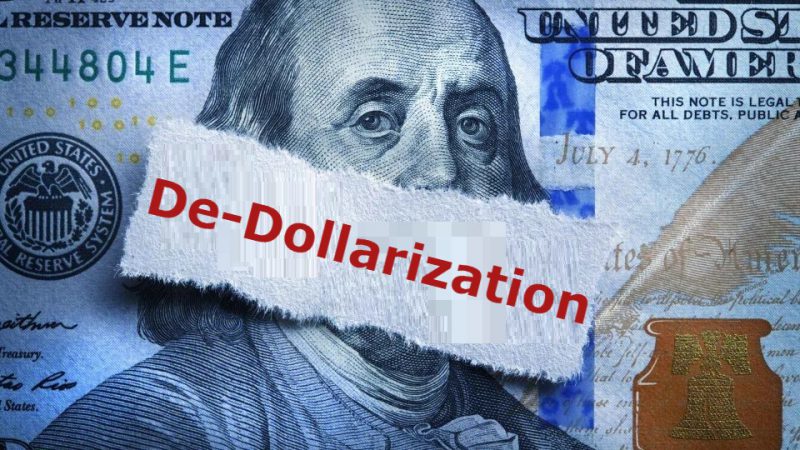The BRICS alliance kick-started the de-dollarization agenda and is advancing at a rapid pace to bring the US dollar down. From convincing other countries to ditch the US dollar, to settling trade in local currencies, and planning to launch a new payment system similar to SWIFT, all ideas are firmly placed on the deck.
Also Read: BRICS: New Country Plans To Ban the US Dollar for Trade
De-dollarization is now the most loved word among developing countries in the hopes of strengthening their local currencies and native economies. BRICS is convincing them that cutting ties with the US dollar leads to growth and prosperity. However, that’s far from reality as developing countries need the US dollar to thrive and survive.
Without the US dollar, their economies could tank and local businesses could collapse as their native currencies cannot withstand the whips of the market. The US dollar is seasoned for decades overlooking all market turbulence and still takes the top spot.
Also Read: BRICS Expansion: New Country Shows Interest To Join the Alliance
The BRICS Idea of De-Dollarization is ‘Non Sense’, Says Analyst


Commodities Expert Jeffrey Christian explained that the BRICS idea of de-dollarization is “a myth and nonsensical.” He told clients in a presentation this year that de-dollarization is a “bad joke” and must not be taken seriously. He explained that countries that are eager for de-dollarization are already facing a series of economic consequences.
Also Read: US Dollar Gives a Major Blow To BRICS Nations’ Currencies
Therefore, the question of uprooting the US dollar is far from reality as they’re unable to pull their own economies out of a crisis. The US dollar has been the dominant currency for more than seven decades and bringing it down is no easy task. De-dollarization is a term that sounds good on paper but is difficult to bring to reality. BRICS is living in a dystopian world if they think the Chinese yuan will replace the US dollar, he said.
“There are a lot of people who are hesitant to trade and hold reserves and wealth and bank accounts in the Chinese yuan because it’s not a fully free-moving currency. So there are limits to it,” he said on the BRICS idea of de-dollarization to Business Insider.





